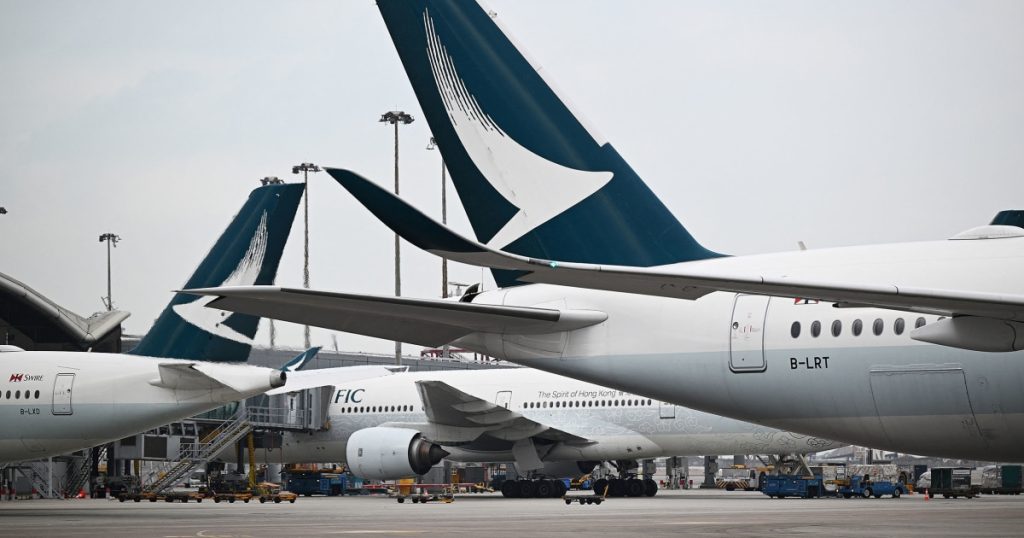Cathay Pacific, Hong Kong’s flagship airline, recently grounded 48 planes for inspection after an engine part failure on one of its Airbus A350 aircraft prompted the inspection of the entire A350 fleet. The airline discovered 15 aircraft with components that needed replacement, resulting in the cancellation of multiple flights within Asia. Long-haul flights were not affected by the groundings, and the airline assured that all aircraft would be back in service by Saturday. The engine component failure was the first of its kind worldwide, and both the A350-1000 and the A350-900 planes were grounded for inspection. Rolls-Royce, the British manufacturer of the engines, stated that it was committed to supporting the investigation.
The affected aircraft were exclusively powered by Rolls-Royce engines, prompting the manufacturer to collaborate with Cathay Pacific and Airbus to address the issue. Rolls-Royce mentioned that engine components could be replaced while the engine remained on-wing, and it would continue to update other airlines on any developments. Airbus, the manufacturer of the A350 aircraft, noted that it was working closely with Rolls-Royce and Cathay Pacific but refrained from sharing further details due to the ongoing investigation. The civil aviation authority of Hong Kong did not provide any comments on the issue, leaving the airline to manage the situation and conduct necessary repairs.
The incident raised concerns about the safety of the Airbus A350 aircraft, particularly those powered by Rolls-Royce engines. While Cathay Pacific assured that the inspections would be completed promptly, other airlines with A350 jets, such as Qatar Airways, British Airways, and Virgin Atlantic, began to assess the situation and potentially conduct their own inspections. Japan Airlines, which operates five Airbus A350-1000 aircraft, announced that it would carry out precautionary inspections during scheduled maintenance but did not anticipate any flight disruptions. The response from various airlines indicated a collective effort to ensure the safety and reliability of the A350 fleet.
The aviation industry has been closely monitoring safety issues with aircraft, particularly in light of recent incidents involving Boeing’s 737 Max planes. Airbus, serving as the main competitor to Boeing, has faced its own scrutiny, like allegations of using titanium sold with fake documents. Both Airbus and Boeing affirmed that the safety of their planes remained unaffected despite the regulatory inquiries. The grounding of Cathay Pacific’s A350 fleet highlighted the importance of rigorous maintenance and inspection procedures to prevent potential in-flight incidents and ensure passenger safety. As airlines continue to collaborate with manufacturers and authorities, the focus remains on addressing any vulnerabilities in the aircraft fleet and maintaining high safety standards in the aviation sector.
Overall, the situation with Cathay Pacific’s grounded aircraft underscored the importance of proactive maintenance and thorough inspections, especially in response to unexpected engine failures. The airline’s decision to ground and inspect its entire A350 fleet demonstrated a commitment to passenger safety and operational integrity. As other airlines with A350 aircraft monitored the developments, the industry collectively worked towards resolving the issues identified. With the support of Rolls-Royce, Airbus, and regulatory authorities, Cathay Pacific aimed to restore all planes to service within a few days, ensuring that flight operations could resume smoothly. Amid ongoing safety concerns in the aviation sector, the incident served as a reminder of the rigorous measures in place to safeguard air travel and maintain public confidence in the industry.


